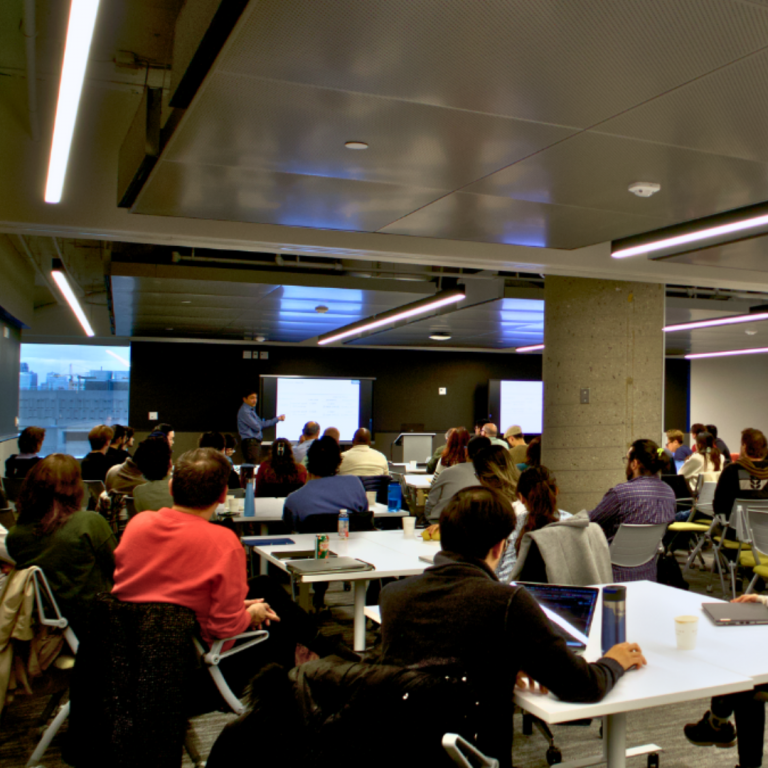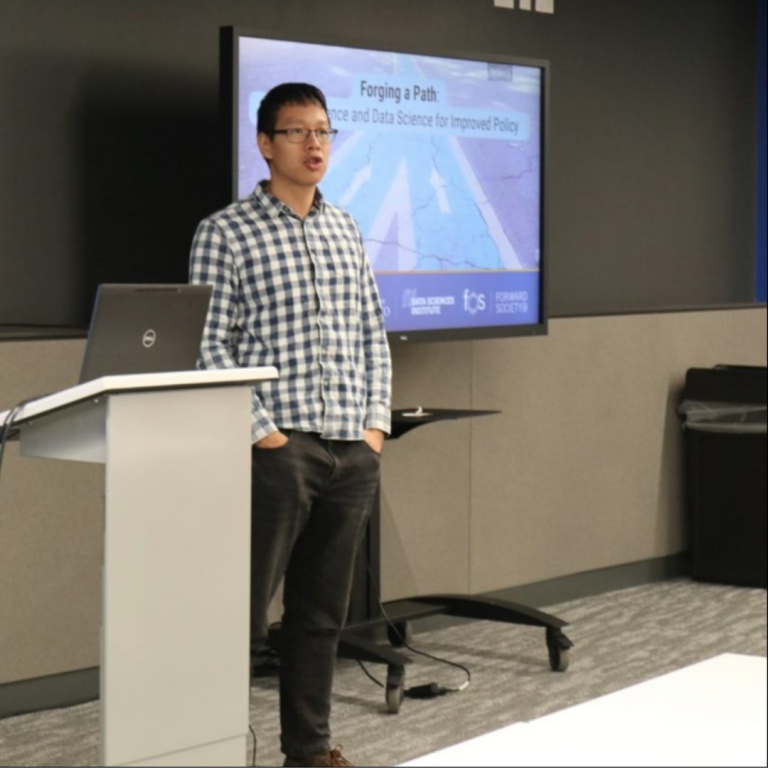New professional certificates in Data Science and Machine Learning Software Foundations, launched by U of T’s Data Sciences Institute and powered by Upskill Canada, will prepare workers for success in these fast-growing fields. Photo: skynesher via Canva, Getty Images.
by Tyler Irving
A new training initiative launched by the University of Toronto’s Data Sciences Institute (DSI) is helping Canada meet its growing need for talent in data science and machine learning
Applications for the DSI Data Science and Machine Learning Software Foundations Certificates opened in October to strong demand. DSI is now gearing up for a second session, scheduled to commence on January 15.
By 2026, digital literacy is projected to be essential for 90 per cent of jobs in Canada
The certificates offer affordable, flexible and rigorous upskilling opportunities, designed for learners with a university, college degree or diploma who have three years or more of work experience.
Prospective DSI Certificate participants can be employed or actively seeking employment and do not need experience or education in the field of data science. These certificates are accessible to individuals from all backgrounds, and do not require prior affiliation with the University.
The certificates are powered by Upskill Canada, a national initiative powered by Palette Skills and funded by Innovation, Science and Economic Development Canada (ISED). Upskill Canada is designed to meet the talent needs of high-growth sectors while building a more inclusive economy.
Supported by funding from Innovation, Science and Economic Development Canada’s (ISED) Upskilling for Industry Initiative, more than 15,000 Canadian workers will benefit from an innovative approach to skills training. Central to the Upskill Canada initiative is the role of community training providers, who work closely with local and national employers to identify precise suites of skills being sought by industry. Equipping workers with these skills will create new career pathways for Canadians and better position Canadian companies to compete both domestically and internationally.
“What we’re hearing from our partners in industry is that targeted training in key areas can greatly increase the available talent pool in this fast-moving sector,” says Lisa Strug, Academic Director of the Data Sciences Institute and Professor in the Departments of Statistical Sciences and Computer Science (Faculty of Arts & Science) and the Division of Biostatistics (Dalla Lana School of Public Health) at U of T. Strug is also a Senior Scientist at The Hospital for Sick Children.
“We’re pleased to be able to leverage U of T’s leadership in machine learning and data sciences to provide new opportunities for workers in the digital economy.”
“Through the industry advisory group, prospective employers like Thomson Reuters are actively engaging with the Data Sciences Institute as they develop learning opportunities that address the evolving data science and machine learning demands across small, medium, and large-sized enterprises,” says Carter Cousineau, Vice President, Data and Model (AI/ML) Governance and Ethics, Thomson Reuters.
“This collaborative approach helps ensure learners gain the necessary skill sets to pursue new roles, or identify opportunities for advancement, in this swiftly changing landscape.”
Both certificates offer foundational concepts in data science and machine learning knowledge and provide opportunities for practical application through employer case studies. Each certificate also includes sessions dedicated to career advancement, from support for resume writing to networking and interview skills development.
The technical and job readiness programming will be delivered as online modules with in-person and hybrid opportunities for professional networking. Certificate recipients will be well positioned for roles such as data analysts, data managers or applied machine learning analysts.
The courses and job readiness sessions are offered part-time, allowing learners time to balance existing commitments and still accomplish their career goals. Over the course of the next two years, five cohorts of learners are expected to complete the 16-week certificates. Initially, the training will be offered to learners at a substantially reduced rate of $425 (+HST) per certificate, thanks to the support of Upskill Canada. The DSI has also committed accessibility funding for those with financial need.
“We’re so proud to formally launch Upskill Canada with our inaugural class of workers and training service providers,” says Rhonda Barnet, CEO of Palette Skills, which was chosen by ISED to run the Upskill Canada initiative.
“This is a big first step – but it’s only the beginning. We’re looking forward to working with our supporters in government and industry to upskill many more Canadians so they can transition into high-demand roles in the modern workforce – and help fast-growing companies achieve their full potential.”





